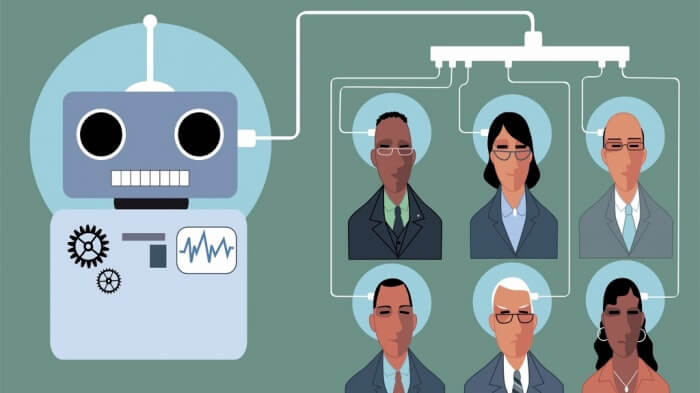Artificial Intelligence: A Critical Frontier
How is AI helping businesses and their customers take control?

In a modern economy, the website is a foregone conclusion. Whatever your business model, your end customer expects you to have some representation on the internet. If you are a consumer-facing business, chances are a mobile app is just as vital to your brand as your website.
While these business tools are considered mission critical today, a mere 20 years ago almost no one had a website and the app only rose to importance with the advent of the smartphone economy, less than a decade ago.
At traditional industry pace these are rapidly changing parameters, and the next technology revolution is already upon us. By 2020, Artificial Intelligence (AI) will be as necessary to your business as the website or the app - and now is the time to prepare.
In fact, Forrester predicts across all markets, there will be a greater than 300% increase in investment in AI this year compared with 2016, and businesses that use AI technology, coupled with big data and IoT, will “steal $1.2 trillion per annum from their less informed peers by 2020.”
Putting the ‘Natural’ In Artificial Intelligence
Artificial Intelligence is more than just the way that technology artificially interacts with you. It’s about the user’s ability to naturally engage with the technology in a way that feels conversational and enjoyable.
That engagement is referred to as natural language interaction (NLI), and it’s mission-critical for enterprise-grade AI solutions. The ways in which your customers are able to naturally interact with your brand will determine your destiny in a digital-first world.
Steve Jobs is an example of someone who understood the relationship between people and technology, and the ways in which it would evolve. Until only recently, the problem of making technology understand humans was way too hard to solve, so instead the industry made an excellent living by training humans to understand and drive technology.
Steve saw it differently. He revolutionized the industry through his unrelenting approach of making technology do what humans wanted, helping to raise understanding and awareness around technologies like Automated Speech Recognition (ASR) which - among other things - helped set the stage for NLI.
In fact, it is no coincidence that the launch of Siri was not on the Mac platform. Steve recognized that the desktop environment would be rapidly overtaken by mobile devices. While he isn’t here now to witness the rise of the IoT economy, it’s a safe bet that Steve saw it coming and knew naturally-conversant AI would b the key to rapid adoption.
How IoT Is Sparking Enterprise Evolution
This rapidly changing IoT environment presents its own set of challenges and opportunities for the modern enterprise. Customers are increasingly wanting to interact with businesses and technology in ways that are convenient to them - often through a reduced form factor device, typically mobile and increasingly screen-free, requiring alternative input methods such as voice.
While this may seem daunting, massive technical advancements in cloud technology have made it much easier for companies to provide enhanced, sophisticated user experiences without the drag and drain on computer power and operating efficiency. In other words, as Steve Jobs might say, bring on the ‘tiny magical devices’ - the cloud has room!
As customers seek to engage with brands through their preferred technology, and move beyond simple query and answer interactions, the modern company has one significant challenge to address: how to get my highly valuable brand in front of my target audience?
As the Tech Giants continue to invest in consumer-facing technology that seeks to understand the user, people will grow more accustomed to having greater control and more natural interactions with their devices.
In turn, they will expect the business world to keep pace, and will favor those companies they perceive as being smart, convenient and intuitive. This makes it mission critical for enterprises to invest in natural language AI solutions.
AI Is More Than A Chatbot
Businesses have already found very seamless ways of integrating this type of natural interaction in customer service bots, but to continue to compete in a 24/7, digital-first world, they must next find ways to make the AI experience a revenue-generating one.
In other words, rather than simply help track down a necessary product, or follow up with a bank balance inquiry, or direct a customer to the nearest location, naturally-conversant AI solutions can predict what customers will need and provide it to them all in a highly-personalized, instantly gratifying manner.
And all of the data generated from these interactions will help to fuel ongoing customer engagement, quickly building upon itself and enabling the organization to provide a level of sophisticated service previously unimagined.
Multiple sources predict that 2017 is the year of AI, and I’ll add my assertion that 2017 will be the tipping point for enterprise-level AI integration. Organizations that are able to incorporate natural language interaction into customer-facing AI functionality will dominate consumer engagement and serve as disruptors to those enterprises who drag their feet.
The era of customer control is upon us, and AI is the solution to allowing today’s business brands to compete in an entirely new age of digital disruption.
Thanks for signing up to Minutehack alerts.
Brilliant editorials heading your way soon.
Okay, Thanks!



